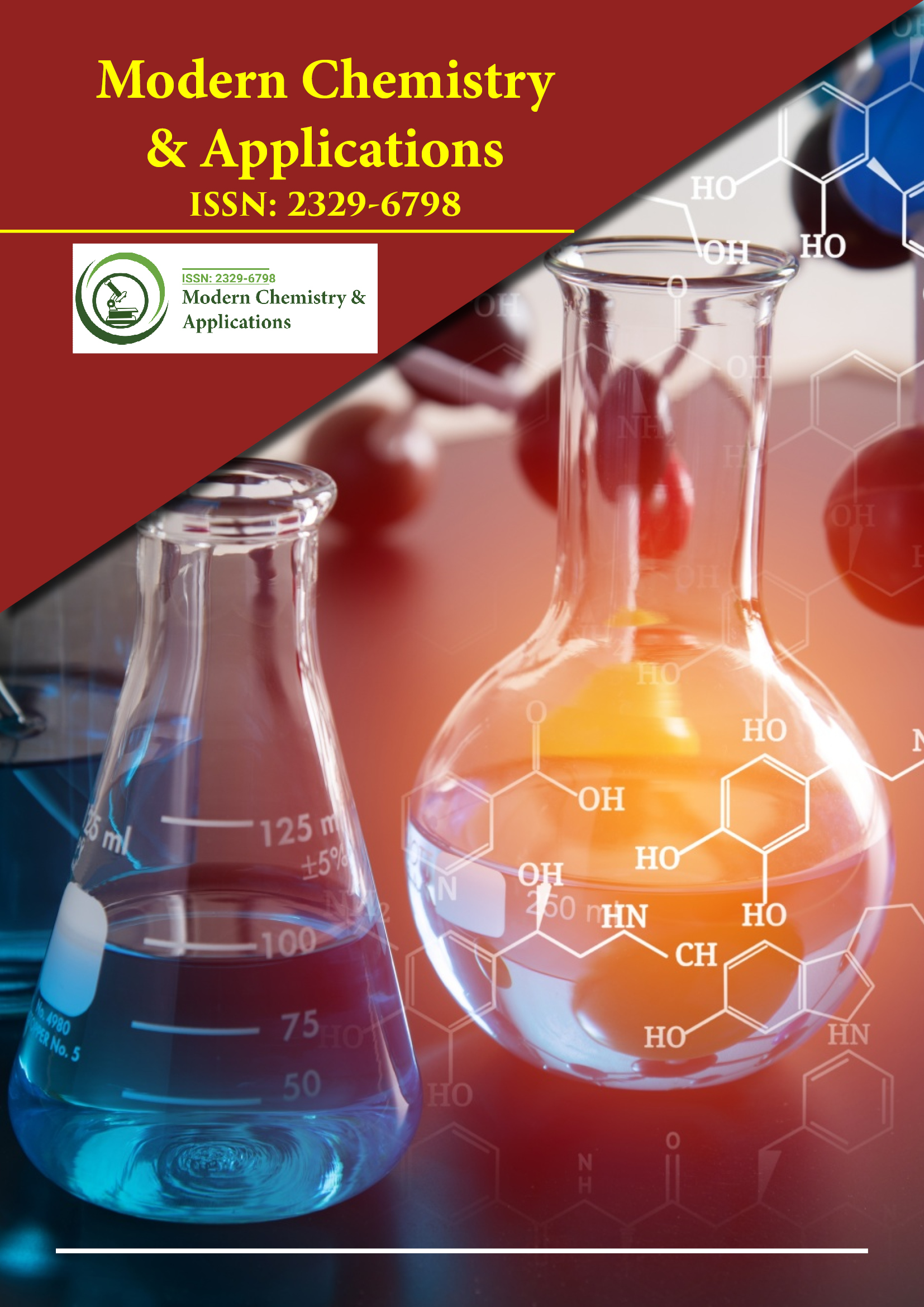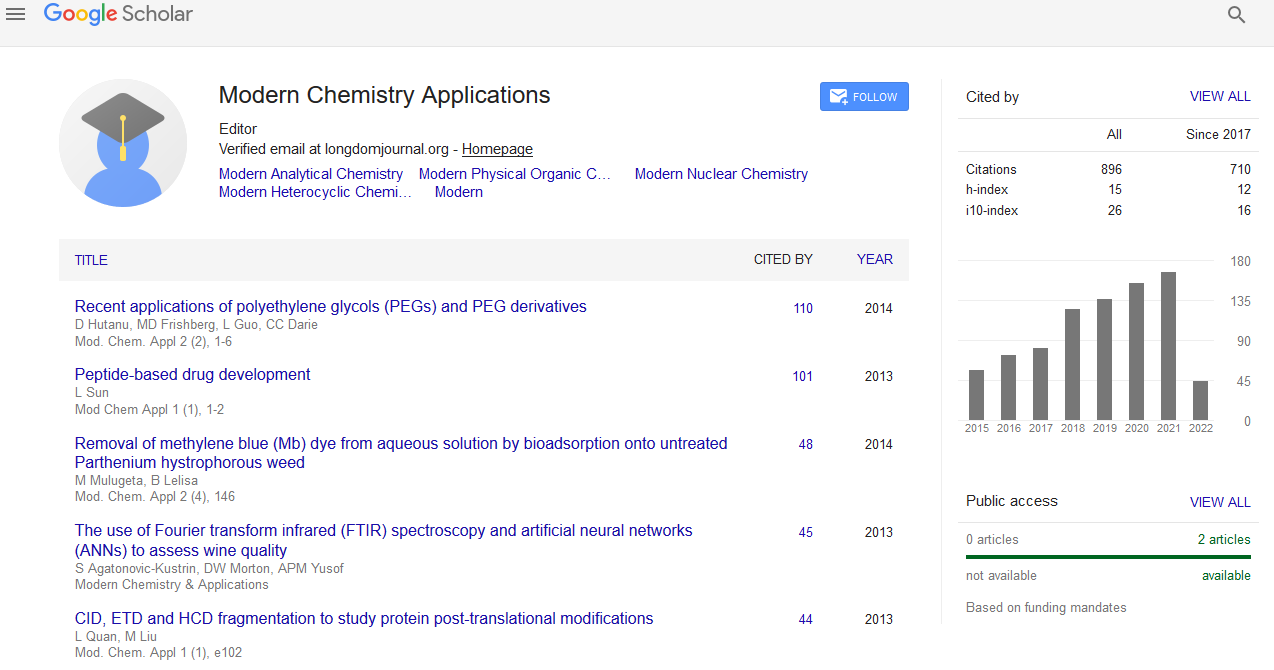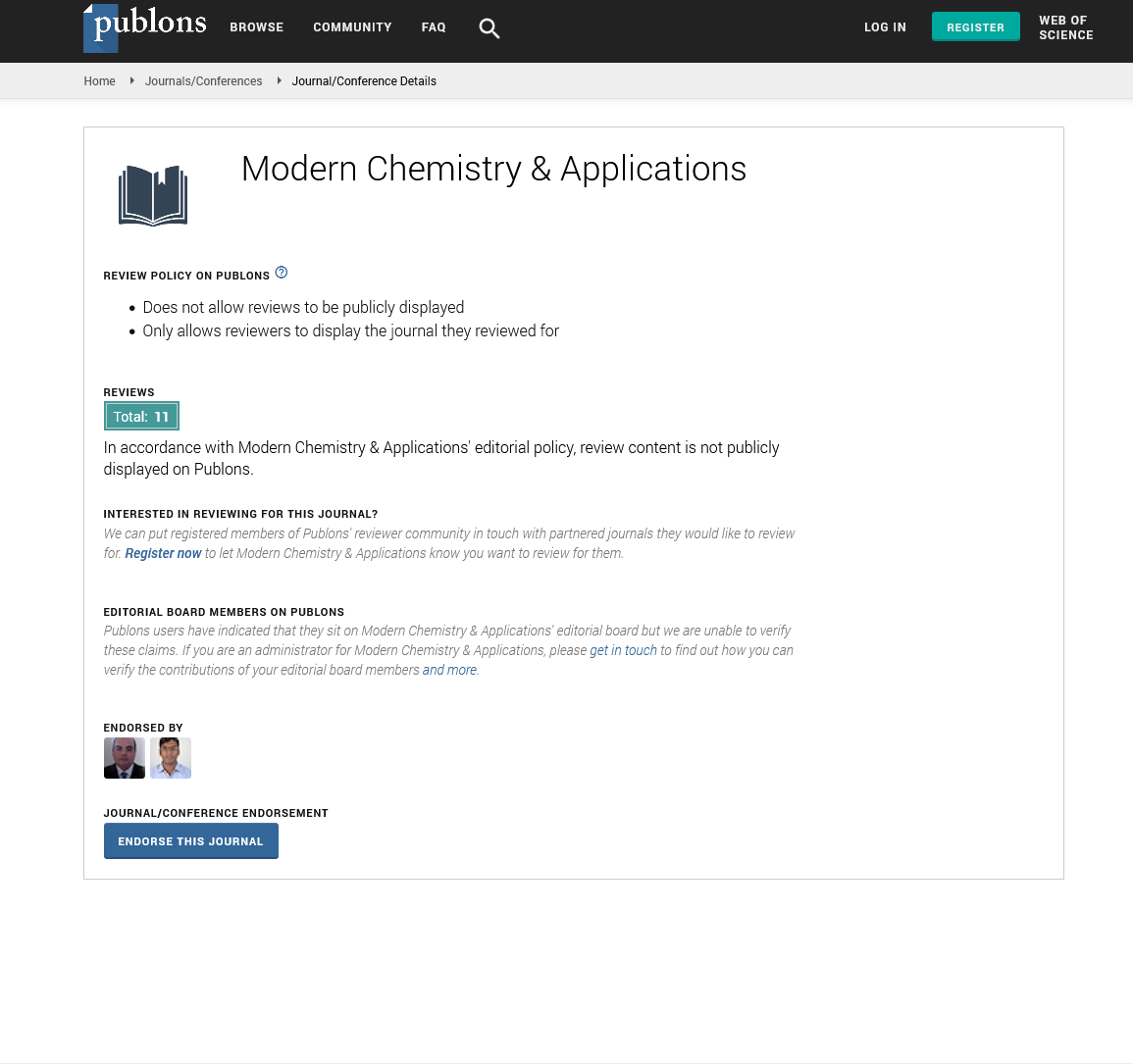Indexed In
- Open J Gate
- JournalTOCs
- RefSeek
- Hamdard University
- EBSCO A-Z
- OCLC- WorldCat
- Scholarsteer
- Publons
- Geneva Foundation for Medical Education and Research
- Google Scholar
Useful Links
Share This Page
Journal Flyer

Open Access Journals
- Agri and Aquaculture
- Biochemistry
- Bioinformatics & Systems Biology
- Business & Management
- Chemistry
- Clinical Sciences
- Engineering
- Food & Nutrition
- General Science
- Genetics & Molecular Biology
- Immunology & Microbiology
- Medical Sciences
- Neuroscience & Psychology
- Nursing & Health Care
- Pharmaceutical Sciences
Amino-acids salt solutions for CO2 capture from flue gases
5th Global Chemistry Congress
September 04-06, 2017 | London, UK
Soon Kwan Jeong and K T Park
Korea Institute of Energy Research, South Korea
Posters & Accepted Abstracts: Mod Chem Appl
Abstract:
Anthropogenic carbon dioxide (CO2) is a major greenhouse gas that acts as a blanket to absorb thermal radiation emitted by the earthâ??s surface. Many studies have introduced new technologies for CO2 capture; however, the quest for feasible capture technologies continues. Amino acid salt solutions have distinguished features such as fast reaction kinetics, high cyclic loading capacity, and good stability towards oxygen, low vapor pressure and biodegradable property. In this study, the CO2 absorption capacity, absorption rate and heat of absorption of the aqueous potassium salts of amino acids were investigated using semibatch absorption system, wetted wall column and a differential reaction calorimeter (DRC). The results were compared to amine solvents. The CO2 loading capacity of amino-acids salts solutions showed higher than that of amine solutions. The CO2 loading capacities were found to be 0.50 and 0.68 mol of CO2/mol of solvent for aqueous MEA and potassium salt of L-alanine at 298 K, respectively. The heat of regeneration depends on the heat of absorption as well as sensible heat and latent heat. Therefore, the heat of absorption can be used as useful data for the continuous process. MEA and DEA showed 81.77 kJ/mol of CO2 and 67.06 kJ/mol of CO2, respectively. Among the amino-acids slats solutions, potassium salt of L-alanine showed the lowest heat of absorption of 53.26 kJ/mol CO2. Amino-acids salts solutions had the higher CO2 loading capacity and lower heat of absorption than those of MEA. Therefore, amino-acids salts solutions are deemed to be the potential CO2 absorbent to replace the existing system.
Biography :
Soon Kwan Jeong received BS degree in Chemical Engineering and PhD degree in Chemical Engineering both from Korea University, South Korea, in 1993 and 2000, respectively. From 1992 to 1994, he was a Researcher at Honkook Tire Co., Seoul. From 2005 to 2006, he was a Postdoctoral Fellow with Pratim Biswas at Washington University. He is currently a Principal Researcher at Korea Institute of Energy Research, South Korea. His research interests include “Biomimetics, material science and engineering for CO2 capture and conversion”.


